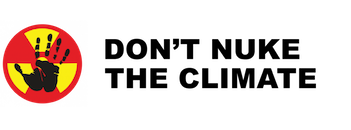PR:Japanese guest to speak in Helsinki on Friday
Media Release
Wednesday, August 14, 2013
- for immediate release -
Japanese guest to speak in Helsinki on Friday:
"From HIROSHIMA After FUKUSHIMA"
Helsinki This Friday, 16th of August 2013, Japanese performance artist Tashi Iwaoka will visit Helsinki and hold a lecture on the atomic disaster in Fukushima, Japan. The information event will take place at 6 PM at Makamik, Jyrängöntie 1, in Kumpula, Helsinki. This is an "Atomic Café" event accompanied by coffee and cookies handed out to fundraise for anti-nuclear activities. After the lecture the documentaries "Radioactivists" (anti-nuclear actions after Fukushima and Japanes protest culture) and "Arlit: Second Paris" (uranium mining impacts in Niger) will be screened.
March 11, 2011 2.47 PM Japanese local time (JSP) the so far most violent atomic disaster in history started at the Fukushima nuclear power plant (NPP) "Daiichi". A series of reactor explosions in several blocks of the NPP kept the world in suspense. For one week one bad news followed the other, illustrating the inhere risk of nuclear power technology. A natural disaster kicked off the atomic catastrophe - first cutting the emergency systems from the electric grid, then destroying the emergency generators eventually leading to the accumulation of hydrogen gas to explode under a certain pressure. The Fukushima disaster - with Japan in a high technology country with some of the highest security standards in the nuclear field - clarified an atomic catastrophe is possible in every nuclear power plant everywhere.
The 9.0-magnitudes Great East Japan Earthquake caused an emergency shut-down of all concerned reactors while the external electricity supplies dropped out. 12 of 13 emergency power generators started - the regular emergency procedure was successfully initiated; six Fukushima reactors switched to emergency cooling. At 3.35 PM JSP an up to 15 meters Tsunami wave hit the NPP washing over the 5.7 m protective wall and destroyed the sea water pumps situated by the coast. At 3.41 PM five emergency power generators and most of the electricity distribution boxes were flooded and fail leading to a station blackout. Cooling to dissipate the decay heat was insufficient, emergency batteries started, but were too limited. Generator vehicles could not reach the NPP due to the destroyed roads after the earthquake. Eventually the cores of several reactors melted down. Block 1 exploded on March 12 at 3.36 PM JST, block 3 blowed up on March 14 at 11.01 AM, block 2 bursted on March 15 at 6.10 AM, block 4 exploded the same day around 6 AM.
Latest news from Fukushima reported some 20 to 40 trillion bequerels reached the Pacific in radioactive Tritium since 2011. Still not all circumstances of the catastrophe or the consequences are completely known. New riddle was given some weeks ago when the steam escaping reactor 3 indicated unexplainable conditions inside the containment illustrating the dimension of lack of knowledge regarding the occurence of the accident. While the pro-nuclear UNSCEAR committee claimed this spring "no health impacts" in consequence of Fukushima would have to be expected, the independent International Physicians for the Prevention of Nuclear War (IPPNW) found in a study some 20,000 to 40,000 cancer cases to be caused by radiation exposure. UNSCEAR is the same body that claimed after Chernobyl there would have been only a few cases of death.
Tashi Iwaoka will explain in this event some basics of nuclear power, about the situation in Japan after the Fukushima catastrophe, and how this forced him to learn about the risks related to atomic power.
Dear editor!
Contact Falk Beyer (+358 41 7243254, media AT nuclear-heritage.net[1]) for interviews and background information. We appreciate to supply you with material and data related to the Fukushima disaster.
Find additional information on this event in Finnish at: http://turvaverkosto.wordpress.com/2013/08/12/from-hiroshima-after-fukushima-atomic-cafe-helsingissa/
Nuclear Heritage Network
Am Bärental 6
D-04720 Döbeln
GERMANY
website: http://nuclear-heritage.net
email: contact AT nuclear-heritage.net[1]
phone:
- +49 3431 5894177
- +358 41 7243254

